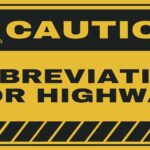The abbreviation for Required is a small yet crucial detail you’ve probably encountered countless times, especially in forms or official documents. Understanding it can save you time and ensure you don’t miss any important sections. Whether you’re filling out a survey, signing up for services, or handling paperwork, this simple abbreviation plays a big role in your daily tasks.
Curious about how it’s used or why it’s important? You’re in the right place! In this article, we’ll explore the ins and outs of this abbreviation, why it’s necessary, and how it fits into the world around you. Keep reading to learn more!
What is the Abbreviation for Required?
The abbreviation for required shorthand is most commonly RQD. This shorthand for required word is used in many different contexts, including legal documents, forms, contracts, and administrative paperwork. By using RQD, writers and professionals can save time and space, making communication more efficient.
Another common abbreviation for required is Req’d or Req, although RQD is widely used in formal and professional settings, particularly in technical or legal contexts. Each of these abbreviations serves the same function: they represent the idea that something is necessary or mandatory.
What Does the Abbreviation for Required Mean?
When we use RQD, we are referring to something that is mandatory or necessary. It’s a shorthand for indicating that a particular item, action, or condition is essential and must be completed or provided.
For example, when you’re filling out a job application, you might see a note that reads, “Resume RQD.” This simply means that submitting a resume is a required part of the application process. Similarly, in legal documents, you might see ID RQD to signify that identification is required for verification or entry.
Using RQD simplifies communication, especially when space is limited, and helps professionals convey important instructions or requirements quickly and clearly.
Definition, Pronunciation, and Examples
Definition of “Required”
The word required refers to something that is essential, necessary, or mandated by rules, regulations, or conditions. For instance, when you’re asked to submit certain documents for an application, those documents are required by the process, meaning you cannot move forward without them.
Pronunciation of RQD
Pronouncing RQD might seem tricky at first, but it’s straightforward. It is typically pronounced as “R-Q-D” (saying each letter individually). This is common for many abbreviations, especially in formal contexts where clarity is key.
Examples of “Required” and RQD in Context
Here are some practical examples of RQD and the term ‘required’ used in various contexts:
- Job Application: “Cover letter RQD for all applicants.”
- Legal Document: “Witness signature RQD on page 5.”
- Technical Form: “ID RQD for verification of age.”
- Business Report: “Client consent RQD before proceeding.”
These examples show how RQD is used to indicate something mandatory in professional, legal, and administrative documents.
Short Abbreviation for Required: When & Why It’s Used
The required short form use of RQD (and other similar abbreviations like Req’d) is all about efficiency. Abbreviations like these are particularly useful in settings where space is limited—forms, technical writing, legal documents, and even in online submissions. Here’s why these short form of required abbrevs are used:
- Space-saving: Long documents and forms require many fields to be filled out. Shortening “required” to RQD helps keep things concise.
- Time-efficient: Professionals and legal experts often use abbreviations to save time in drafting documents or instructions.
- Clarity in formal settings: Especially in contracts or legal documents, using RQD keeps the text formal but clear without being overly wordy.
Acronym for Required: Is It Different from an Abbreviation?
It’s important to note that RQD is an abbreviation, not an acronym. While both abbreviations and acronyms shorten a phrase or word, they differ in formation.
- Abbreviation: A shortened form of a word or phrase, such as RQD for “required.”
- Acronym: A specific type of abbreviation formed from the initial letters of a phrase, like NASA (National Aeronautics and Space Administration).
So, while RQD is an abbreviation, it’s not an acronym since it’s derived from a single word rather than a phrase. Understanding this distinction is key in the proper use of shorthand in both written and spoken communication.
How to Pronounce Abbreviation for Required Correctly
To pronounce RQD correctly, simply enunciate each letter individually: R-Q-D.
In casual conversation, you might encounter variations in pronunciation depending on the region or context, but the most widely accepted form is to say the letters separately. The use of abbreviations like RQD is common in formal speech, particularly in legal, academic, or professional environments.
Other Common Abbreviations Related to “Required”
Abbreviations are often used interchangeably based on context. Here are some common abbreviations related to the word required:
- Req’d: This is another common abbreviation for required and is often used in job listings or application forms.
- Req: A simpler, often informal abbreviation of required.
- Rqr: A shorthand used occasionally in technical or academic papers.
These abbreviations serve the same purpose as RQD but may vary slightly depending on the formality or space constraints of the document.
Synonyms for Required: Broadening Your Vocabulary
Knowing a variety of synonyms for required can help enhance your writing and communication. Here’s a list of some alternatives to required:
- Mandatory: This indicates something that is compulsory, or required by law or rule.
- Essential: Signifying something absolutely necessary.
- Obligatory: Implies something that must be done because of a law, rule, or necessity.
- Compulsory: Another synonym for something that must be done.
These synonyms can be useful when you want to avoid repetition or when you need to express the level of necessity in different contexts.
Antonyms for Required: Understanding the Opposite
In contrast to required, there are several antonyms that indicate something is not mandatory. Here are a few to consider:
- Optional: Something that is not necessary and can be chosen freely.
- Voluntary: Referring to actions that are done willingly, not required.
- Discretionary: Suggesting that something can be done according to one’s judgment or preference.
Knowing the antonyms helps clarify the meaning of required by providing a clear distinction between what must be done and what is up to the individual.
The History Behind the Abbreviation for Required
The use of abbreviation of requirements like RQD can be traced back to the need for simplifying communication, particularly in written forms. Historically, required abbreviation became essential in areas like legal documentation, business, and academia, where the need to convey complex instructions quickly and clearly was paramount.
Before the widespread use of computers and digital documents, shorthand was often used in handwriting to save time and space. The need for efficient communication grew, leading to the establishment of standardized abbreviations, such as RQD, in formal writing.
When to Use the Abbreviation for RQD (and When Not To)
While RQD is commonly used in formal documents, forms, and technical writing, there are times when it might be inappropriate to use it. Here’s a quick guide:
When to Use RQD:
- Legal Documents: When drafting contracts or other legal papers, RQD is often used to make instructions clear and concise.
- Job Applications: On forms that list required documents or actions, RQD saves space and keeps things professional.
- Technical Forms: In environments where precision is key, like scientific research or technical reports, RQD is a useful shorthand.
When Not to Use RQD:
- Informal Writing: In casual or personal communication, it’s usually better to use the full word required to avoid confusion.
- Creative Writing: If you’re writing a story or any content meant to be more engaging and conversational, abbreviations can break the flow of the narrative.
Example of the Word “Required” and Its Abbreviation in Context
Here are a few examples where RQD or required can be used in context:
- Job Application: “References RQD for all applicants.”
- Legal Agreement: “Signature RQD within 30 days of receiving the document.”
- Technical Instructions: “ID RQD for all participants entering the venue.”
These examples showcase how RQD helps streamline communication in various fields, ensuring clarity while saving time.
Final Thoughts: Understanding Abbreviations in Professional Communication
In conclusion, understanding the abbreviation for required, RQD, is essential for anyone working with formal documents, technical papers, legal contracts, or even just filling out forms. By using abbreviations effectively, you can save time, make your communication clearer, and avoid redundancy.
Whether you’re filling out an application, reviewing a contract, or drafting a report, knowing when and how to use RQD and its synonyms can help you communicate more efficiently. Always be mindful of the context and audience when using abbreviations to ensure that your message is clear and professional.
Abbreviations like RQD are more than just shortcuts; they play a crucial role in ensuring that information is conveyed quickly, efficiently, and accurately. So next time you come across RQD, you’ll understand exactly what it means and how it fits into the broader context of professional communication.

Jone Smith is an experienced blogger and content creator behind Verbo Mize. With a passion for storytelling and insightful commentary, Jone brings a wealth of knowledge on diverse topics. His expertise in blogging, combined with a keen eye for detail, makes his work both informative and engaging, offering readers valuable perspectives on a wide range of subjects.







